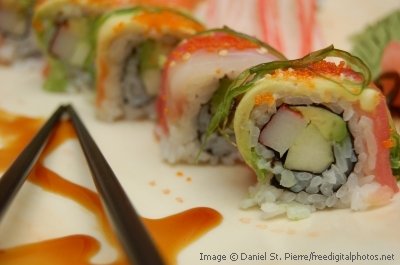Healthy Diet Menu
Learn How To Establish A Healthy Eating Plan
Learning about healthy diet menu and creating your daily healthy eating plan is a first step in any successful healthy weight loss diet.
If you are familiar with healthy nutrition guidelines it is great! But it still may seem a bit challenging when it comes to applying them into your daily life. With all sorts of information available online a lot of my readers, especially teens still wonder what would be a good healthy diet menu plan.
While we all know that fresh veggies and lean meats are good for us, many of us get confused on how much of that healthy food to have and how often.
So I would like to shed light on how to plan your everyday healthy diet menu and help you to establish healthy eating plan as your ultimate weight loss solution.
Healthy Eating Plan Routine
First of all, to keep your digestive system, your body and your mind in good shape you have to get into an ‘eating routine’.
Think what works best for you and try to have your meals at the same time every day.
There are no universal eating guidelines that will fit into everyone lifestyle. You still need to adjust your healthy eating plan to your individual needs. Your age, gender, lifestyle, your job, and health condition must all be taken into consideration.
The key to success here is the consistency.
Try not to skip meals or eat at unusual times. As I stated many times before your body loves predictability. Your digestive system functions better if it is on the schedule. Your metabolism also improves helping you lose excess weight.
So not only it is important to develop a healthy eating schedule but also decide how much food to eat everyday and at what intervals.
Ideal Healthy Diet Menu
Ideal healthy diet menu from nutritional point of view is a 3-4 meal plan with 4-5 hours intervals in between meals.
More frequent healthy diet menu is advised to those with certain health conditions related to surgery recoveries, heart strokes, gastrointestinal tract disorders, metabolic imbalances and so on. In those cases the space between meals must be not less than 2 hours.
It is usually recommended eating 5-6 SMALL meals per day to keep your metabolism going.
The Size Of Your Meals
The distribution of daily caloric intake (i.e. how much food to eat at every meal) can vary depending on your lifestyle, your family traditions, seasons and so forth. I personally love to use myfitnesspal.com to record my calories.
But generally, an average person with light to moderate physical activity should have at least 3 main meals a day.
Eat Your Breakfast!

Special attention must be given to the breakfast, which must be the largest meal of all (25-30% of your daily calorie value).
Substantial breakfast will provide you with energy for a new day and keep you feeling upbeat and cheerful until your next meal.
If you are not used to having a large breakfast and do not feel hungry in the morning – don’t worry. Many people are just like you. It takes time to get used to a new healthy routine – so take your time and do not torture yourself.
To get your morning appetite back try waking up half an hour earlier, do a little stretch, and reduce a quantity of food after dinner.
Lunch And Dinner
Your lunch should also be quite substantial - 35-40% of daily caloric value, and the smallest meal should be dinner (15-20% of daily calorie value).
Healthy Snacks Are Good For You
You may of course add two snacks per day to keep your mind off the food especially at the beginning of your healthy living transformation. Usually I recommend including one snack couple of hours after breakfast and one couple of hours after lunch.
But snacks should be snacks – something small and nutritious such as raw fruits, veggies, cup of yogurt or handful or nuts.
Healthy Eating Plan Tips
- Eat at least 3-4 times daily to reduce the load on your digestive system and keep you energized.
- Do not rush through your meals. Allow yourself at least 20 minutes to a half an hour.
- Eat slowly and chew everything thoroughly. Do not eat on a go. Instead try to eat in a peaceful and pleasant environment.
- Do not eat until you are full that it is difficult for you to move. You should leave the table feeling a little hungry.
- Do not eat 2-3 hours before bed time. Exclude fat, fried, spicy, highly processed, salty and fiber rich foods from your dinner. To prepare your body and yourself for a good night sleep eat easily digesting foods such as yogurts, cottage cheese, kefir, lean meats, egg whites, steamed veggies, herbal teas and so on.
- Never overeat at dinner. If you have a habit or eating late at night, eat foods from the above list. A glass of buttermilk or a piece of your favorite vegetable will not harm your system, but will leave you satisfied.
If you consistently follow your newly established healthy diet menu and get into habit of healthy eating you will notice that you never overeat anymore and as a result lose weight without putting much effort.
Related articles:
Healthy Diet Plan › Healthy Diet Plan › Healthy Diet Menu








